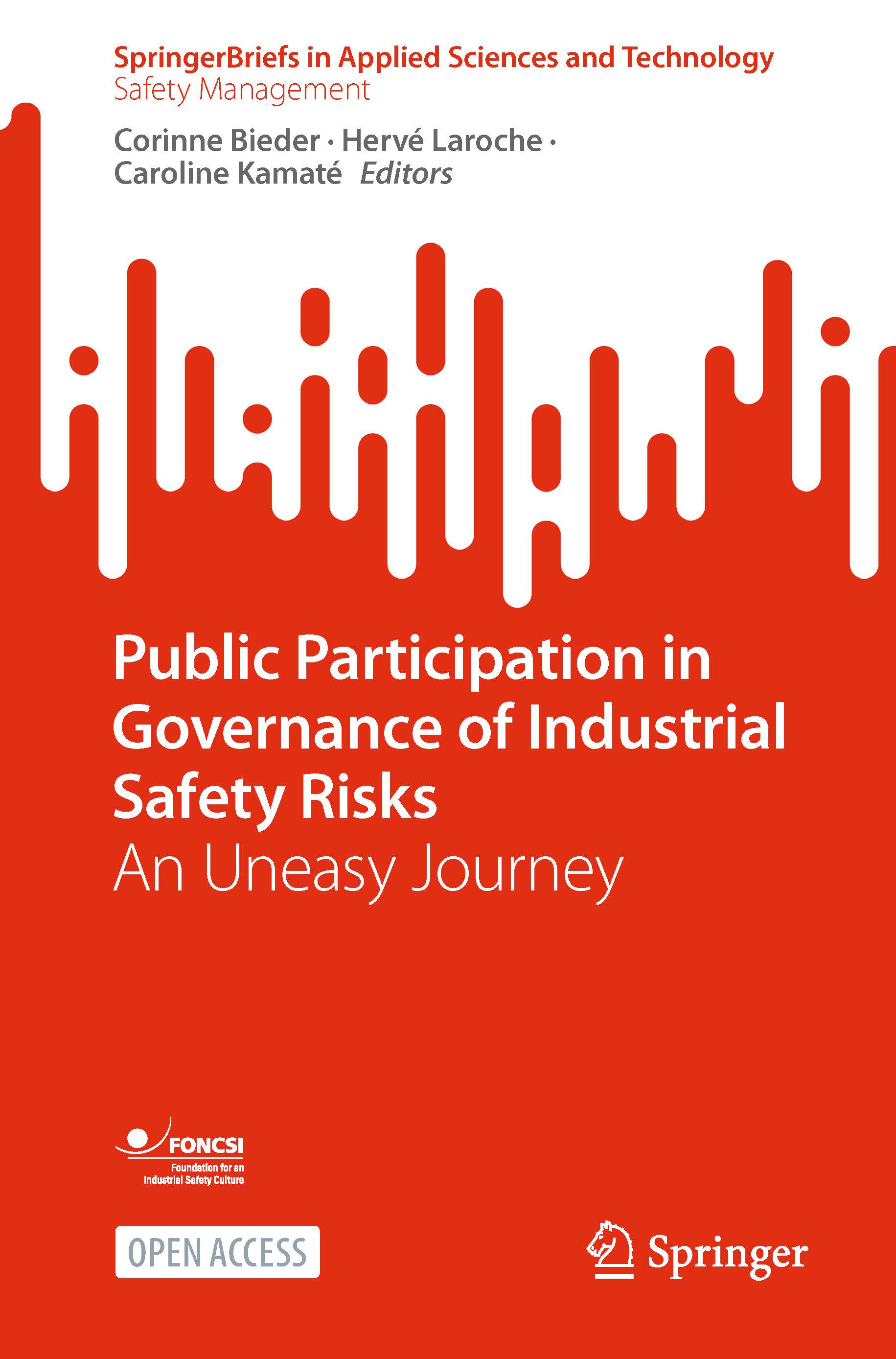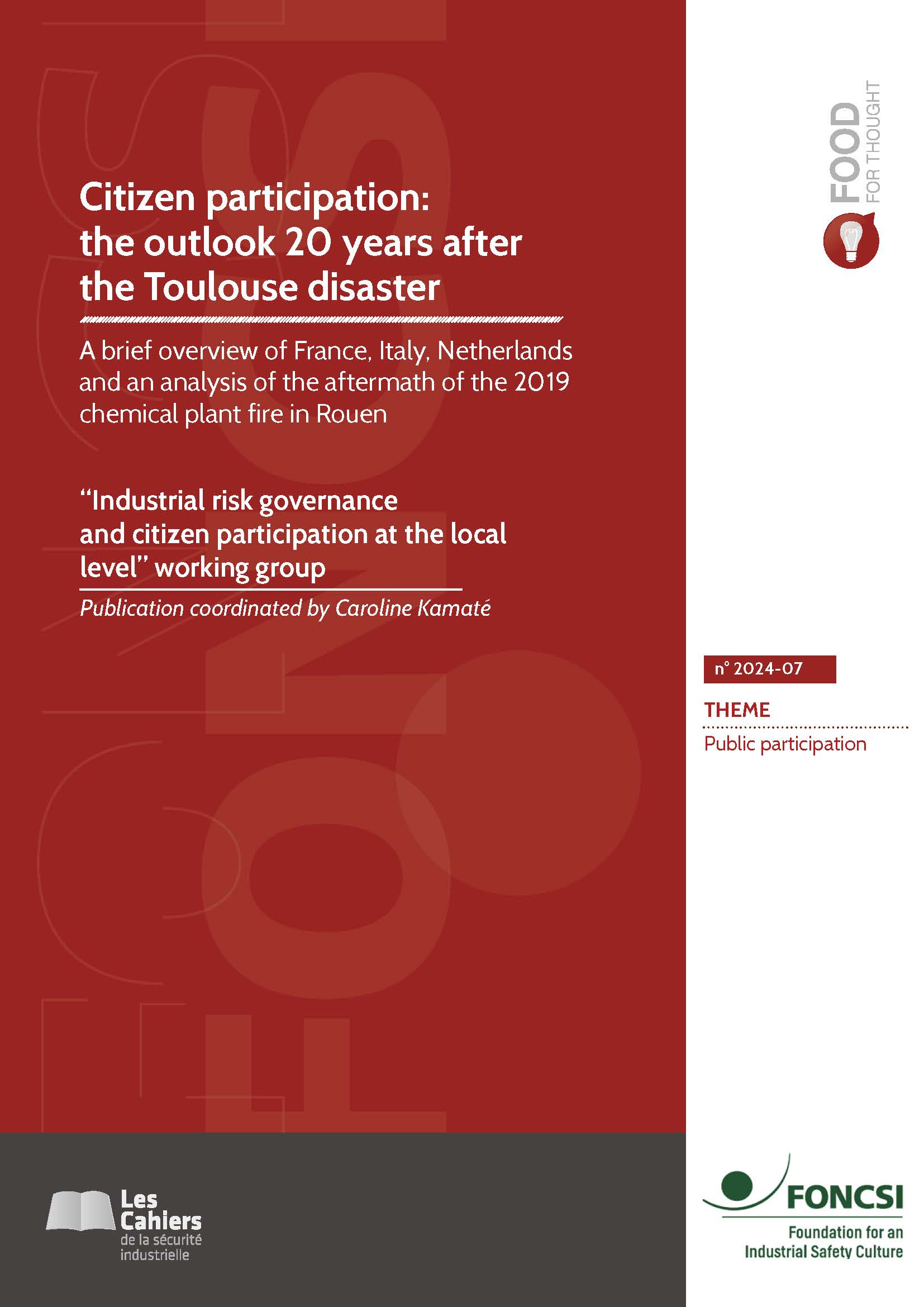Why is this theme important?
The high-risk industry is both a source of employment, and a driver of economic development. At the same time, it comes with the risk of major accidents and/or chronic health hazards. This ambivalence is part of the day-to-day experience of the various stakeholders, but it becomes particularly evident if an undesirable event occurs. If this happens, public emotions run high, and the search for who is responsible illustrates just how sensitive the presence of high-risk industry remains for local residents. The fire at the Lubrizol plant in Rouen in September 2019, and the tense atmosphere created by the management of the crisis, clearly demonstrates this.
The Foncsi has produced a summary of academic knowledge on how, from a sustainable development perspective, to maintain or promote profitable, competitive, innovative and safe industrial activities that respect the environment, the local area and communities.
What conditions support a pragmatic and peaceful cohabitation between high-risk activities and civil society in a constantly changing, unstable and uncertain world?
Results

Public Participation in Governance of Industrial Safety Risks
SpringerBrief in Safety Management

Citizen participation: the outlook 20 years after the Toulouse disaster
Industrial Safety 'Cahier'
The strategic analysis
The Foncsi carried out a strategic analysis on this subject in 2022 and 2023.
Methodology
Strategic analysis is a working methodology developed by the Foncsi. It aims to ensure high-level research over a particularly short period (18-24 months), and to establish a continuum of innovation between research and industry.
There are four key stages:
- The state of the art
- The international academic seminar
- Comparison with industrial practices
- The industrial seminar
Find out more about strategic analyses
The project team for this analysis
Experts from companies and other organizations
- Stéphane Corcos, DSAC-DGAC
- Nabila Gadelhaq, TotalEnergies
- Olivier Guillaume & Thierry Taponard, EDF
- François Jeffroy, Benoît Gautier & Renaud Martin, IRSN
- Christophe Karlin & Julie Taldir, SNCF
- Jérôme Poénou, GRTgaz
Scientific experts
- Caroline Kamaté, Foncsi program manager
- Corinne Bieder, Enac
- Hervé Laroche, ESCP Business School
The working group
The Foncsi coordinated a working group on this topic from 2020 to 2022. Work focused on the transposition and implementation, at local level in France, of regulations about the provision of information and citizen participation regarding the question of industrial risk.
Find out more about working groups
Members of the working group
- Corinne Bieder, Enac
- Paolo Crivellari, Certop
- Olivier Guillaume, EDF R&D et UVSQ
- Emmanuel Martinais, ENTPE
And Caroline Kamaté & Jean-Marc Vaugier de la Foncsi
